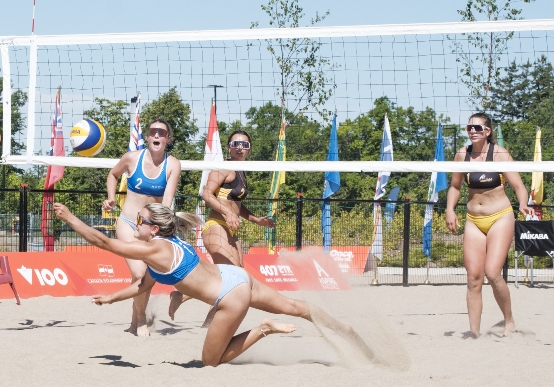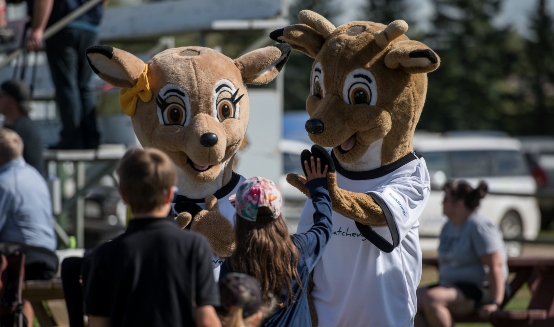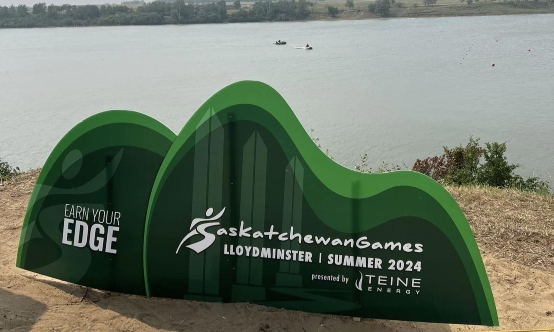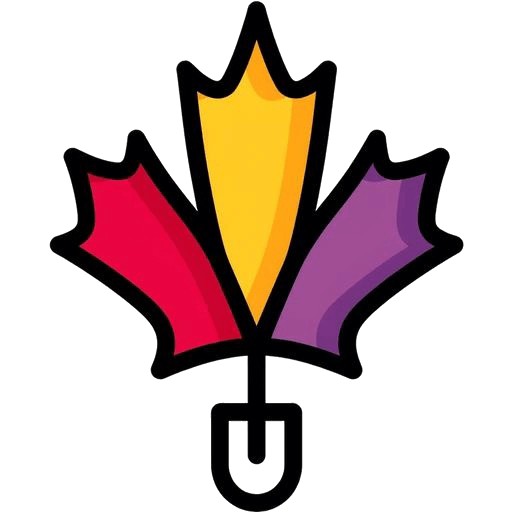
Western Canada Summer Games: Past, Present & What Lies Ahead
The Western Canada Summer Games (WCSG) were once a regular heartbeat in the Canadian amateur sport calendar. Every four years, young athletes from the Prairies and northern territories would gather to test themselves against the best in their age group. The Games offered medals, yes, but they also provided a space for learning how to compete, for communities to unite around sport, and for athletes aged 13 to 23 to perform on a stage that prepared them for the Canada Games, national championships, or even the Olympics.
The last time the flame burned was at the 2019 Western Canada Summer Games in Swift Current, Saskatchewan. It was a hot August, and more than 1,700 athletes, coaches, and officials brought the city alive. Since then? Silence. The Games are suspended indefinitely.

Origins of the Western Canada Summer Games
The story starts in 1975, Regina, Saskatchewan. Officials had seen how fragmented youth sport was across the West. Some provinces ran local games, some regional meets, but few offered the type of high-performance stage athletes needed to take the next step.
So, they launched the first WCSG, one year before the Montreal Olympics, using many of the same 23 summer sports disciplines. It was meant to be a proving ground.
The dual mission was clear:
- Athlete development – sharpen skills, test talent, prepare for the bigger stage.
- Community building – host cities got new facilities, volunteer corps, and a sense of pride that lasted longer than the medals.
How the Games Changed Over the Decades
Through the 1980s and 90s, the WCSG grew. Alberta, Saskatchewan, Manitoba formed the core, joined later by the Yukon and Northwest Territories, and eventually Nunavut in 2003.
But it wasn’t all smooth. In the 1990s, rapid expansion saw team sizes balloon, forcing caps and even leading some provinces to step away before returning by the end of the decade.
The biggest blow came in 2016, when British Columbia pulled out entirely, citing costs and “return on investment.” For context, B.C. had been the medal powerhouse. Their absence changed the balance of competition – and, many would argue, the prestige.
So yeah, the WCSG always had to balance two things: giving athletes a genuine high-performance stage, and making sure hosts could actually afford to run the event.
2019 Western Canada Summer Games – Swift Current, Saskatchewan
If you were in Swift Current in August 2019, you’ll remember it.
Dates and Participation
- When: August 9–18, 2019
- Where: Swift Current, SK
- Who: More than 1,700 athletes, coaches, officials, and staff from Alberta, Saskatchewan, Manitoba, Yukon, Northwest Territories, and Nunavut.
Sports Contested
Sixteen sports took centre stage, from athletics and swimming to basketball summer games, beach volleyball, golf, and wrestling.
| Sport | Venue | Note |
|---|---|---|
| Athletics | Swift Current Comprehensive HS | Full track program incl. para events |
| Baseball | Mitchell Field | Tournament play |
| Softball | Rec Complex | Age-group pathway |
| Volleyball | iPlex | Indoor format |
| Beach Volleyball | Riverside Park | New courts, lasting legacy |
| Golf | Chinook GC | Junior competition |
| Basketball | iPlex & SCCHS Gym | Boys & girls tournaments |
| Swimming | Aquatic Centre & Sask. Landing | Pool + open water |
| Wrestling | SCCHS Gym | Youth weight classes |
| Cycling | Highland Coulee & highways | Road + MTB + TT |
| Canoe/Kayak | Lac Pelletier | Sprint & distance |
| Rowing | Lac Pelletier | Small boat + team events |
| Triathlon | Sask. Landing | Youth swim/bike/run course |
| Diving | Aquatic Centre | Springboard & platform |
| Tennis | Riverside Park | Singles & doubles |
| Soccer | O.M. Irwin & Riverside | Condensed tournaments |
And yes, results were posted online daily – a nod to how fans now expect instant updates.
Mascots with Meaning
The mascots, Tansi & Ravi, were a pair of white-tailed deer – one of Saskatchewan’s most familiar animals. Their names carried cultural weight: Tansi means “Hi, how are you?” in Cree; Ravi means “delighted” in French. They were chosen to reflect partnership, heritage, and athletic ability.

Legacy of the 2019 Games
The Swift Current edition left tangible results that remain visible years later. New beach volleyball courts at Riverside Park continue to host local competitions and casual play. The mountain bike course at Highland Coulee Trails, built specifically for the Games, has become a popular spot for riders in the region. Perhaps most importantly, the event trained thousands of volunteers, many of whom still lend their time to community activities across southwest Saskatchewan.
As Denise Barbier, Games Manager in 2019, put it:
“The medals fade, but the infrastructure, the confidence, the sense of what a small community can accomplish – that lasts.”
Suspension of the Games
The 2023 Western Canada Summer Games in Manitoba were cancelled. The Western Canada Games Council later announced that the program was suspended indefinitely.
The reasons? Pretty pragmatic:
- High costs for provinces and territories.
- The loss of B.C. as a major participant.
- Overlap with the Canada Summer Games, which already serve as the national development stage.
As of now, there are no confirmed plans for 2027 or beyond. Saskatchewan Athletics has been blunt: the future of the Games is “uncertain.”
Where Young Athletes Compete Today
Now that the Western Canada Summer Games are on pause, young athletes across the region haven’t stopped dreaming – they’ve just found different stages to chase those dreams.
The Canada Summer Games remain the pinnacle for most developing athletes, serving roughly the same age group (15-21) that the WCSG once targeted. In 2025, St. John’s, Newfoundland and Labrador will host over 5,000 participants from all 13 provinces and territories competing in 17 sports from August 8-25.
For many western Canadian athletes, the path now runs more directly through provincial games. The Saskatchewan Summer Games delivered a vibrant edition in July 2024 in Lloydminster with 1,800 athletes across 14 sports. Alberta runs their Summer Games every two years for athletes aged 11-16, with the next edition scheduled for July 16-19, 2026 in Strathcona County.

Key Competition Opportunities for Western Athletes
| Event | When | Age Range | Scope |
|---|---|---|---|
| Canada Summer Games | Aug 8-25, 2025 (St. John’s, NL) | 15-21 | National (5,000+ athletes) |
| Alberta Summer Games | July 16-19, 2026 (Strathcona County) | 11-16 | Provincial (~2,000 athletes) |
| Saskatchewan Summer Games | Every 4 years | 15-18 | Provincial (~1,800 athletes) |
| Manitoba Summer Games | Biennial | 10-18 | Provincial (~1,400 athletes) |
| BC Summer Games | Biennial | 14-17 | Provincial (~3,000 athletes) |
The Broader Role of WCSG in Canadian Sport and Culture
The WCSG were never only about who jumped highest or ran fastest; they also carried a strong cultural dimension. Paralympic and Special Olympic athletes were included, making the Games ahead of their time in terms of accessibility.
Volunteerism was another defining feature – in 2019 alone, nearly 3,000 people gave their time to keep the event running. Cultural programming added another layer, with local arts and performances presented alongside the competitions, turning the Games into a festival as much as a tournament.
Many athletes eventually went on to larger stages, but coaches often describe the WCSG as the moment when young players first realized the world was bigger than their local club.
Sports in the Digital Era – From WCSG to Online Sports Betting
Here’s the reality: young athletes get their chance to shine at the WCSG, but adult fans? They engage with sport in a different way now.
Some head to streaming services, others dive into fantasy leagues, and many now explore online sports betting. Since single-event betting became legal in Canada in 2022, the landscape has grown quickly, with private operators and licensed online casinos competing for attention.
It creates an interesting contrast. On one side, we see teenagers running relays at the Canada Summer Games track and field. On the other, adults are following the Canada Summer Games volleyball results or buying Canada Games basketball tickets while also tracking odds and placing bets on professional matches.
That doesn’t have to be a bad thing. Sports betting, when licensed and transparent, is just another form of spectator engagement. The key – and this comes up in every responsible gambling guide – is balance.
Quick advice for bettors:
Betting online? Keep it fun. Stick to licensed platforms, limit your spending, and never view it as a paycheck. For anyone exploring online casino Canada choices, here’s a summary of where it’s safe and legal to play. The page also highlights which sites feature fast payouts, strong mobile support, and even integrated sports betting sections for those who enjoy wagering across both casino games and live matches.
What Remains When the Games Pause
The Western Canada Games were a rare thing: part sporting event, part cultural festival, part community rallying point. The 2019 Western Canada Summer Games (WCSG) in Swift Current proved how much a small city can achieve – from new facilities to moments of pure sport like the final point in basketball, or the cheer when a local runner crossed the line in the 4x100m relay.
Right now, the Games sit in limbo. But their legacy – in athletes, volunteers, and communities – endures.
For fans, the ways we engage with sport have shifted. From watching softball at a prairie diamond to scrolling the Canada games basketball results online or checking the Canada summer games volleyball schedule, the channels may change, but the passion remains.
And maybe that’s the real through-line: whether on the track, on the beach volleyball court, or even in the digital space of online betting, sport in Canada continues to connect people – fiercely, joyfully, and sometimes unpredictably.
Where to Find Updates and News
If you’re looking to follow whether the Games might return, the most reliable sources are:
- Western Canada Games Council
- Saskatchewan Athletics
- Canada Games Council
Local papers in potential host cities (Prince Albert, Kamloops, or Winnipeg, for example) are also quick to report on bids or cancellations.
Tip: search social media hashtags like #WCSG or #SwiftCurrentSummerGames – that’s often where updates land first.
